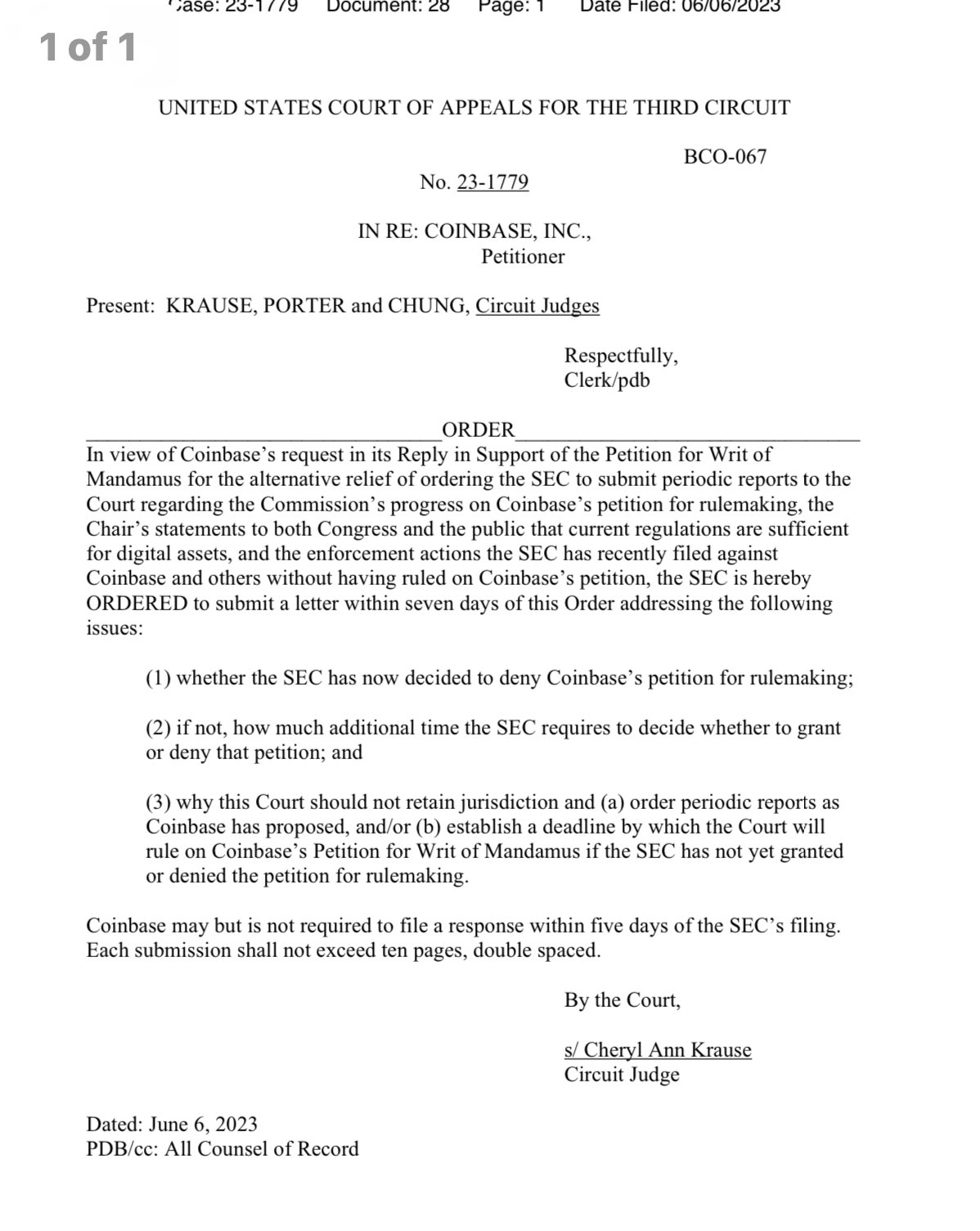U.S. Court Tells SEC to Respond to Coinbase’s Rulemaking Petition Within a Week
The United States Court of Appeals for the Third Circuit has ordered the U.S. Securities and Exchange Commission (SEC) to clarify its position on a rulemaking petition from cryptocurrency exchange Coinbase (COIN).

In April, Coinbase filed an Administrative Procedure Act challenge asking the court to force the SEC’s hand and get the regulator to respond to its 2022 petition for formal rulemaking in the digital assets sector, arguing that the existing requirements are ill-suited for digital assets.
Now, the SEC has been ordered to explain within 7 days if it intends to decline Coinbase’s request, the reasons for such a decision, or a timeline of when it expects to come to a decision.
“Rules of the road, from legislation or rulemaking or both, must come before enforcement actions. That is why we petitioned the SEC for rulemaking nearly a year ago in the first place,” Paul Grewal, Coinbase’s Chief Legal Officer, said in a tweet thread.
All this comes as the SEC sues Coinbase over allegations that it operates an unregistered securities exchange.
“We continue to believe that the SEC could not be proceeding with litigation against our industry, like the case filed against us today, if the SEC had not already decided to deny our petition for rulemaking,” Grewal tweeted.
The SEC also needs to explain why the court shouldn’t keep overseeing the case and why the SEC shouldn’t provide Coinbase with regular updates on rulemaking as asked.
“If the SEC’s answer to our petition for rulemaking is “no,” then they are required by law to tell us, because we have the legal right to question that “no” in court. And there are serious questions to be asked,” Grewal concluded.
Edited by Parikshit Mishra.









